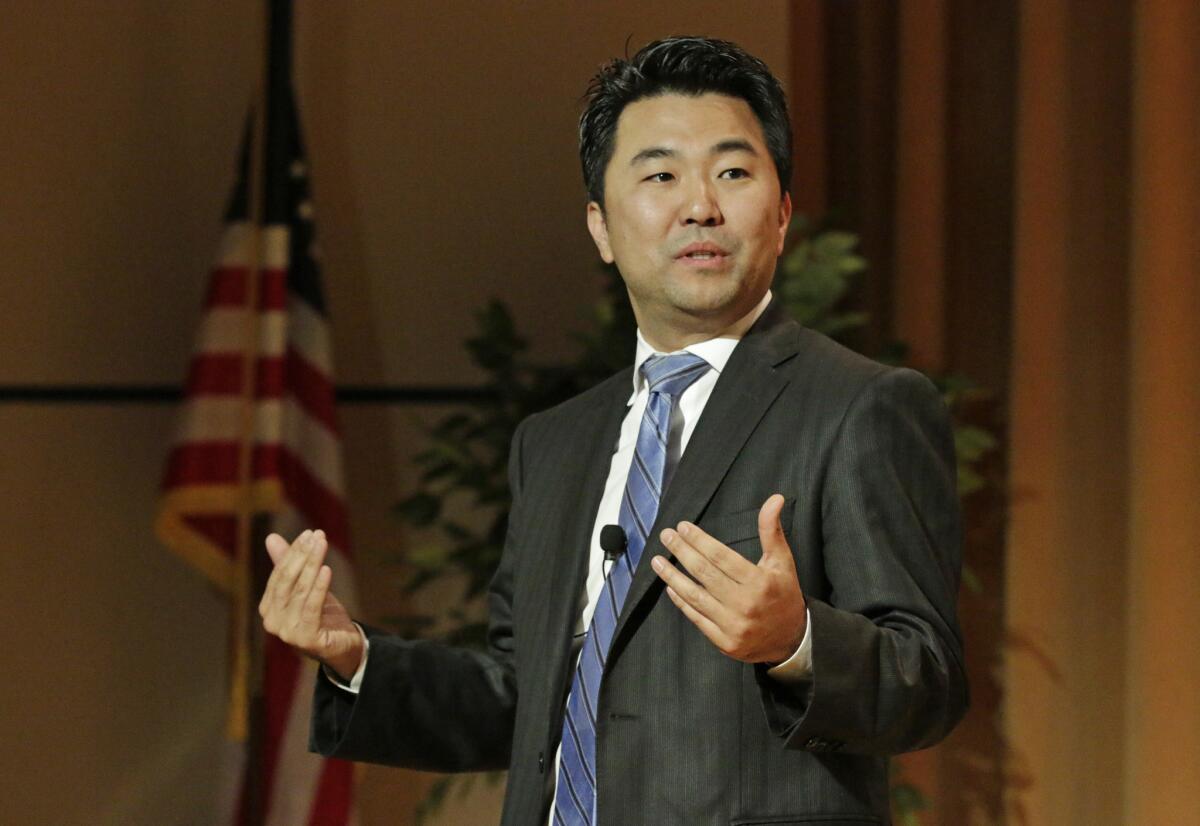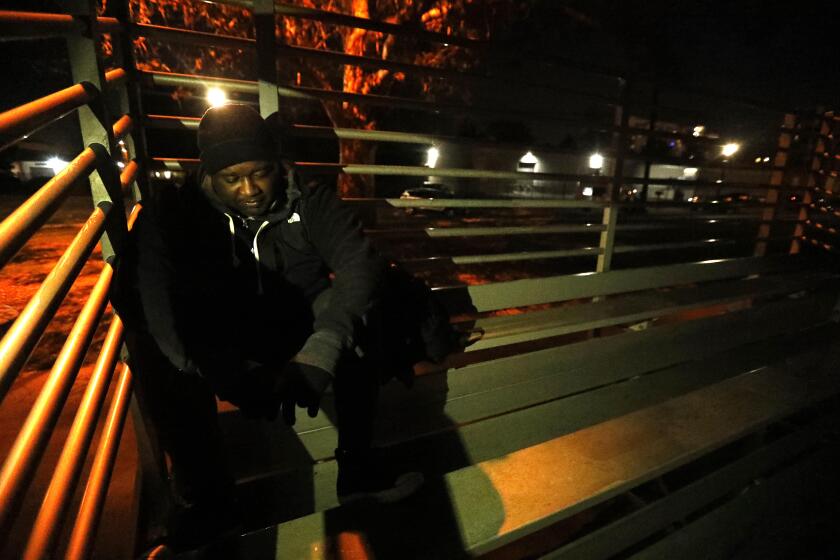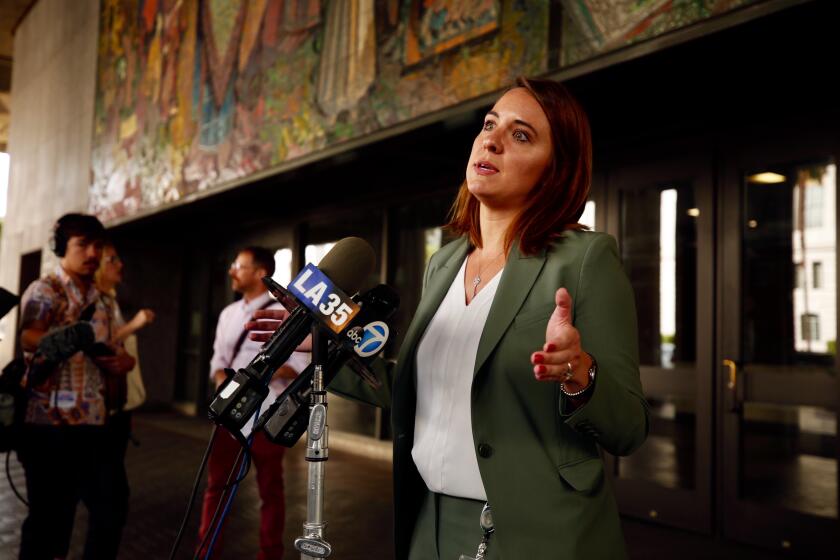An ‘empty homes’ tax could go before L.A. voters in November

The Los Angeles City Council took a first step Tuesday toward asking voters to approve a new tax on empty homes, directing city lawyers to draft the measure ahead of a looming deadline.
But the council has not made a final decision to put the tax on the November ballot, in the face of an ongoing debate about how such a tax should work and how it would affect Angelenos.
The vacancy tax has been proposed as a way to nudge landlords to put vacant apartments back on the market and generate revenue for affordable housing. Backers of the idea, including tenant and housing advocates, have pointed to Vancouver, Canada, where such a tax was credited with bringing empty homes back into use, as a success story.
An analysis conducted for a city commission by Blue Sky Consulting Group found that after carving out some exemptions, a vacancy tax could cover more than 19,000 residential units, nearly 2,500 commercial units and more than 2,900 parcels across L.A. This could bring in as much as $128 million annually, the study found.
The Los Angeles Housing + Community Investment Department also analyzed the idea and found that L.A. has a vacancy rate between 6% and 7% and that “higher end” units are disproportionately vacant compared to apartments going for lower rates.
Amid rising homelessness, “it is very hard to argue that this idea isn’t worth exploring,” said Councilman David Ryu, whose district stretches from Sherman Oaks to Miracle Mile. “Thousands of people are still sleeping on our streets outside luxury towers with empty units. We have a clear problem that requires clear action and urgent action.”
Despite hundreds of millions of dollars spent to curb homelessness, the number of people without a home in Los Angeles grew for the fifth time in the past six years, officials announced Friday.
Councilman Mike Bonin, who championed the proposed tax, suggested moving forward with a measure modeled on a similar tax passed in Oakland, but using a different structure for taxation rates outlined by the Blue Sky consultants.
The Oakland tax penalizes the owners of properties that are in use fewer than 50 days in a calendar year and includes a number of exemptions, such as for landlords who have low incomes.
Blue Sky had recommended a flat tax of $5,000 a year for vacant residential properties, with charges ranging from $5,000 to $40,000 annually for vacant parcels, based on their size and whether they were for single-family homes or multifamily development.
In reaction to concerns raised Tuesday, Bonin adjusted his proposal to exclude commercial properties that are not eligible for residential use and single-family homes that are not owned by corporations.
It is unclear how much those changes would affect the anticipated revenue from a vacancy tax. Blue Sky also estimated that the city would need to spend $2.9 million initially and $5.6 million annually to administer such a tax; a city analyst pointed out Tuesday that additional exemptions could add to administrative costs.
Many Angelenos phoned in Tuesday to urge the council to pursue the tax.
“Right now, thousands are living and dying on the streets because of the economic fallout due to the twin pandemics of COVID and racism. ... It is more important than ever that this go on the ballot,” said Stephanie Hirsch, a resident of Councilman Paul Koretz’s Westside district.
Landlord groups, in turn, have argued that such a tax would hurt property owners even if they are trying to fill units. In a letter to the council, Horace H. Heidt said that bureaucratic delays had made it impossible for him to build the housing he had planned on his property. Being taxed on that empty lot, Heidt argued, would be “unconscionable and outrageous!”
“It is insane to tax vacant apartments in Southern California believing that a rational property owner would voluntarily withhold a rental unit,” Heidt wrote.
Their arguments met with mixed reactions from council members. Koretz said that although he had been warned that a vacancy tax could discourage development, it’s not “necessarily a bad thing” to discourage people from building units and leaving them empty.
The petition is the latest eruption of a longstanding debate within the Los Angeles Homeless Services Authority over how — or whether — to work with law enforcement.
Others complained that they had scant time to weigh the possible effects of a vacancy tax.
Councilman Joe Buscaino, whose district stretches from Watts to San Pedro, said he wasn’t comfortable moving forward with a plan in the “midnight hour” amid concerns from property owners. The council faced a Friday deadline to ask city attorneys to draft the proposed tax.
Councilman John Lee, who represents the northwestern San Fernando Valley, echoed his concerns.
“We just haven’t had time for a thoughtful review of what’s before us, an opportunity to engage with stakeholders,” Lee said.
The council ultimately voted 13-0 to ask city attorneys to draw up the measure for further debate. Deputy City Atty. Strefan Fauble said it was possible for city lawyers to have it ready in roughly a week.
The council now faces a July 1 deadline to decide whether to put the proposed measure on the November ballot.
More to Read
Sign up for Essential California
The most important California stories and recommendations in your inbox every morning.
You may occasionally receive promotional content from the Los Angeles Times.













